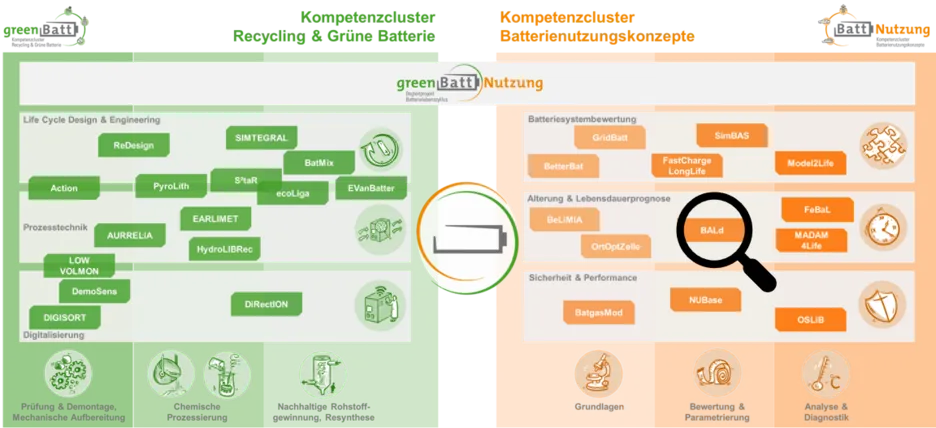Accelerated ageing tests and lifetime predictions of lithium-ion batteries
Contact: Markus Schreiber, M.Sc.
Goal
The aim of the project is to achieve an accelerated lifetime prediction of lithium ion batteries (LlB) through a combination of different laboratory tests for real applications. Lifetime prediction is venrvated as a lnput for the material and product development process of LIB. LIBs are reaching ever longer lifetimes, which means that classic tests can drag on for years. This is too long to be able to support development processes in a targeted manner. For this reason, a concept is being developed within the framework of this project that will enable increasingly reliable and differentiated forecasts to be made after two weeks, after six weeks and after three months. The aim is to achieve a rapid feedback into the development process and a considerable acceleration of the latter. Accelerated ageing tests serve as a basis, which on the one hand are accelerated by tightening stress factors (temperature, pause times, cycle depth, etc.) or on the other hand provide early results through the precise examination of ageing indicators. A validation of the developed concept for accelerated service life prediction is carried out on a real application.
Project Classification
The project is part of the competence cluster Battery Use Concepts (BattUse). This cluster deals with application-related topics, in particular battery system evaluation, ageing and service life prediction as well as safety and performance. An exchange platform for a holistic view and further synergies is formed by the joint cross-sectional initiative greenBattUse with the Recycling and Green Battery (greenBatt) competence cluster, which highlights the aspects of life cycle design and engineering, process technology and digitalisation.

Project partner
The project is planned as a joint university project with the Rheinisch Westfälische Technische Hochschule Aachen, the Technische Hochschule Ingolstadt, the Karlsruhe Institute of Technology, the Centre for Solar Energy and Hydrogen Research and the Technical University of Munich. At the Technical University of Munich, the Chair of Electrical Energy Storage Technology (EES) and the Chair of Automotive Engineering (FTM) are participating as consortium partners.